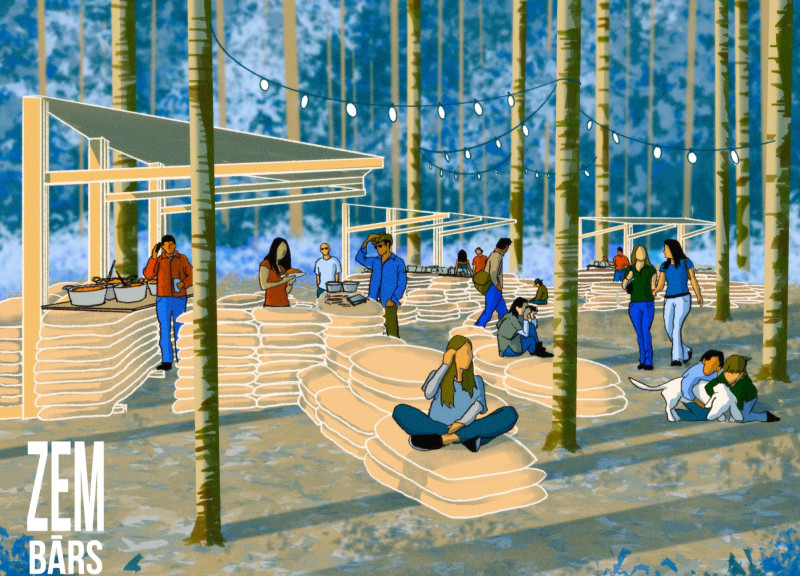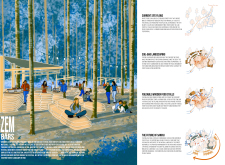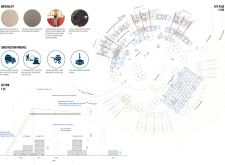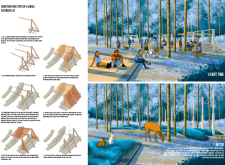5 key facts about this project
The design creates a temporary food court set within an existing forest for the Sansusi Festival. By using a forest path as the main organizing feature, various functional spaces are arranged in harmony with nature. The goal is to encourage interaction among visitors while maintaining respect for the surrounding environment.
Site Organization
Soil-filled bags are arranged thoughtfully to define different seating areas within the food court. This setup allows visitors to engage with one another, enhancing the communal atmosphere. By extending seating along former foundations, the design uses the available space effectively, accommodating more attendees while blending human activity into the natural setting.
Functional Zoning
Within the food court, distinct zones have been created for queuing, catering, and storage. These functional spaces are marked by foldable wooden food stalls, which provide necessary shelter for caterers during the festival. The capability to easily set up and dismantle these structures promotes adaptability for future events and various uses.
Material and Sustainability
Sustainability plays an important role in the design, highlighted through the use of specific materials. Woven natural jute bags and naturally waxed cotton canvas figure prominently. The jute bags are permeable, allowing water and greenery to connect with the forest ecosystem. The waxed cotton canvas delivers waterproofing, ensuring food preparation areas stay functional despite changing weather conditions.
Ecosystem Integration
A key aspect of the design involves the future of the soil bags, which may become a forest garden after the event. Seeds mixed with the soil will promote growth through the jute bags, leading to a transformed landscape over time. This forward-thinking approach supports the ecological integrity of the site and reinforces a positive relationship with nature.
The arrangement of soil-filled bags creates a welcoming seating area that harmonizes with the organic forms of the forest. This simple yet effective solution provides a unique experience for visitors while respecting the natural landscape.





















































